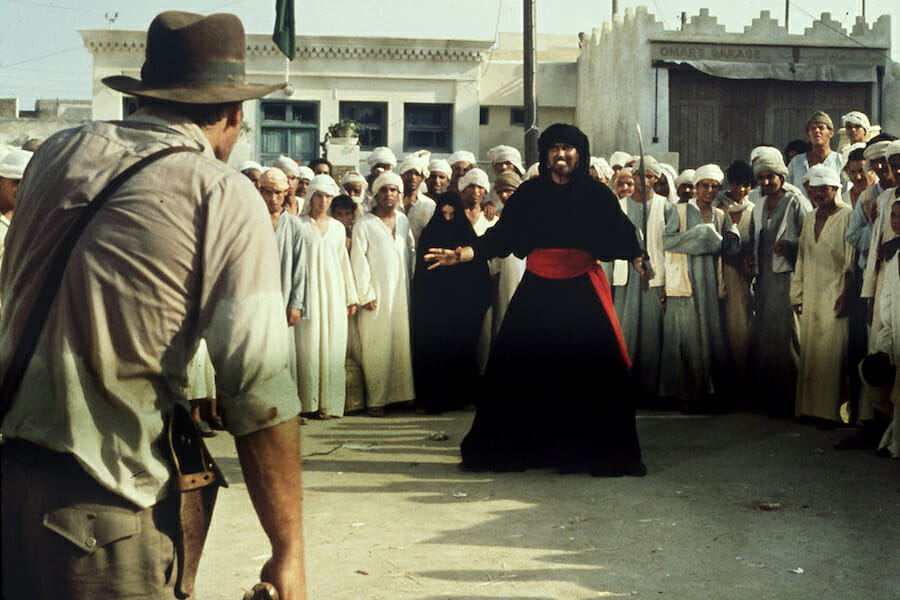
And the Oscar for Sellout Goes To…
I’ve had a hard time wrapping my head around the new policies the Academy of Motion Picture Arts and Sciences announced in early August. Among them is that the Academy will apparently trim the running time of the ceremony by giving out awards for minor categories during commercial breaks. This admittedly is a shame, as sometimes those sincere speeches by the awkward, geeky guys in the technical categories actually end up being some of my favorite parts of the Oscar telecast. Moreover, why on Earth did the Academy think that was the change that had to be made to the telecast and not the numerous, self-congratulatory movie montages that seem awkward, out of place, and always slow down the proceedings? Additionally, the Oscars will move up sooner into the calendar year, scrambling the schedules and timelines of other organizations and guilds and their respective award shows.
But by far, most of the controversy has been around the announcement of a new category called “Outstanding Achievement in Popular Film.” Not much is known about this category, except what the Academy has said, which is that “eligibility requirements and other key details will be forthcoming.” The very idea of this new category strikes me as shortsighted, petty and the ultimate ivory-tower move for the Academy to make. One friend echoed the sentiment shared by many that the decision was “pretty much just [the Academy] saying ‘alright, PLEBS!’”
While boosting the Oscars’ ratings and relevance was supposedly the cause for this decision, that excuse is flimsy, to say the very least. It was revealed in the press that ABC, who airs the Oscars every year, had pressured the Academy to add this new category. Speculation about the motives of this decision has only increased given who owns ABC, Disney. Disney has been doing a massive awards-push for their Marvel blockbuster, Black Panther.
In the aftermath, an incredible outcry from film professionals, fans, and Oscar aficionados such as myself was heard, the likes of which the film-world seldom ever sees. Sure, it’s easy to say (and certainly many people have) that the Oscars got it wrong in rewarding Dances With Wolves the Best Picture Oscar over Goodfellas, or Shakespeare in Love over Saving Private Ryan, or Crash over Brokeback Mountain, but this was something different. This felt like an affront to the very idea of why the Oscars exist in the first place.
Numerous publications and individuals responded not just negatively, but as if they were treating this news as an affront to both the Oscars and to the greater film-awards culture at which Oscar stands at the very top. Rob Lowe tweeted “Seriously, this ‘best pop movie’ category is the worst idea the Academy has had since they asked me to sing with Snow White,” recalling his widely-ridiculed skit at the 61st Academy Awards in 1989. Rolling Stone’s headline simply read “The ‘Best Popular Movie’ Oscar: WTF Is the Academy Thinking?” while Variety had one of the best, snippiest, cheekiest, and snarkiest responses to the matter. In a piece entitled “The Motion Picture Academy Has Become Desperate,” Kristopher Tapley chastises the Academy for the decision, saying in part “this is the worst of these ham-fisted maneuvers because it’s such a condescending stance toward ‘popular’ cinema to take at a time when the Academy is making as many moves as possible to open the gates to all forms of cinema…It’s a stiff backhand to those efforts, in fact, because it outright states that popular films need to be ghettoized.” IndieWire went as far to say that “The Academy’s Best Popular Film Category Is an Insult to Anyone Who Values Good Movies” in a recent headline, which feels like, rather than being hyperbolic, they have tapped into the raw anger this decision has generated.

For basically all of Oscars history, the Academy has, to its credit, done a pretty good job of rewarding zeitgeist-capturing blockbusters (one of the earliest Best Picture winners was Gone With The Wind, which still holds the title for highest grossing domestic film of all time, adjusted for inflation) and smaller films. In a year in which the massively-successful blockbuster genre-film/sequel Mad Max: Fury Road swept the technical categories, the Academy awarded its Best Picture to Spotlight, a much smaller, more intimate drama about journalists uncovering the Catholic Church sex abuse scandal. It has been a balance, but the Academy has been generally been pretty good about maintaining it. The Academy has rewarded some of the biggest movies of all time with its Best Picture, including Ben-Hur, The Sound of Music, The Godfather, Forrest Gump, Titanic, and The Lord of the Rings: The Return of the King, just to name a few. Even when they don’t win Best Picture, other popular flare like The Exorcist, Jaws, E.T., Raiders of the Lost Ark, the first two Lord of the Rings movies, Avatar, and Gravity are still showered with nominations (including for Best Picture) and are usually rewarded in the technical categories. If the prospect of rewarding popular movies was the incentive for this change, the Academy’s record suggested it never really had a problem with that, particularly recently.
Throughout the conversation about the new category, there seems to be an important detail that has not frequently been brought up. I find the Academy’s rule change particularly offensive, given that a mechanism already exists for rewarding popular, and more importantly, influential movies. In many ways, it is considered even more prestigious than winning an Oscar. I’m of course referring to the National Film Registry, a program of the Library of Congress that is mandated by U.S. law to choose 25 new movies a year to preserve for all time based on their “culturally, historically, or aesthetically significant” value. The Registry, which now includes 725 different narrative movies, documentaries, short films, cartoons, experimental films and even one music video (that’d be Michael Jackson’s Thriller) serves as a summation of the first American film century. It, alongside its sister program the National Recording Registry for audio and music, is one of the few programs in which the United States government will not just endorse art, but it is enshrined in federal law that they will also preserve it.
In December, the Registry inducted such popular crowd-pleasers (and personal favorites) as Superman, The Goonies, Field of Dreams, Die Hard and Titanic, alongside more obscure material like the home movies from the Fuentes family. The National Film Registry is democratic, not only because it rewards some of the biggest movies of all time alongside family home movies, but also because the pubic does get a say. Public comment is encouraged for what films should be added to the Registry next, though the National Film Preservation Board and the Librarian of Congress (currently the wonderful Dr. Carla Hayden) do get the final say on the matter.
Why is the Academy trying to do the Library of Congress’s job? Since films must be at least 10 years old before they can qualify for the Registry, there is the added gift of hindsight. The Registry honors films that truly stand the test of time, rather than films that perhaps were honored in their time, but haven’t resonated since. The most glaring example in regards to the Registry is that it obviously includes 2001: A Space Odyssey, which was not nominated for Best Picture the year it came out, but does not include Oliver!, the Best Picture winner for that year. That’s where the National Film Registry comes in. Or at least, it was supposed to, before the Academy decided to go on this harebrained scheme to honor “popular” movies.
Beyond the obvious economic incentives, there is another, far greater incentive for films to try to capture the zeitgeist: immortality and not just the immortality of being remembered, favorited, quoted, or acclaimed. At the Library of Congress’s Packard Campus for Audio-Visual Conservation (which is literally built into the side of a mountain outside of the small town of Culpeper, Virginia), films, including many Registry titles, are restored and preserved so that future generations will also get to watch them one day.
I began by calling this decision, this new category “shortsighted.” To me, the contrast between the Oscars and the National Film Registry is the difference between the short-term and the long-term. The Oscars exist solely to reward what the Academy voting body thinks are the most deserving films in the here and now. That information can be useful in determining what tastes were like at a certain time, but the Oscars have never rewarded a film based on what they think its long-term cultural trajectory will be. The National Film Registry, in contrast, does look at a film’s long-term impact and legacy. Things like popularity are certainly taken into account, but more importantly, the Registry looks for titles that have resonated or influenced for one reason or another. This is also why so many obscure or seldom-seen films make it in alongside the more iconic selections. The Registry is very thoughtful and deliberate about what it chooses to include, with its eye to history. In contrast, this new category seems like the Oscar will simply go to the highest-grossing bidder.
Editor’s note: The Academy of Motion Picture Arts and Sciences has shelved the new category.
